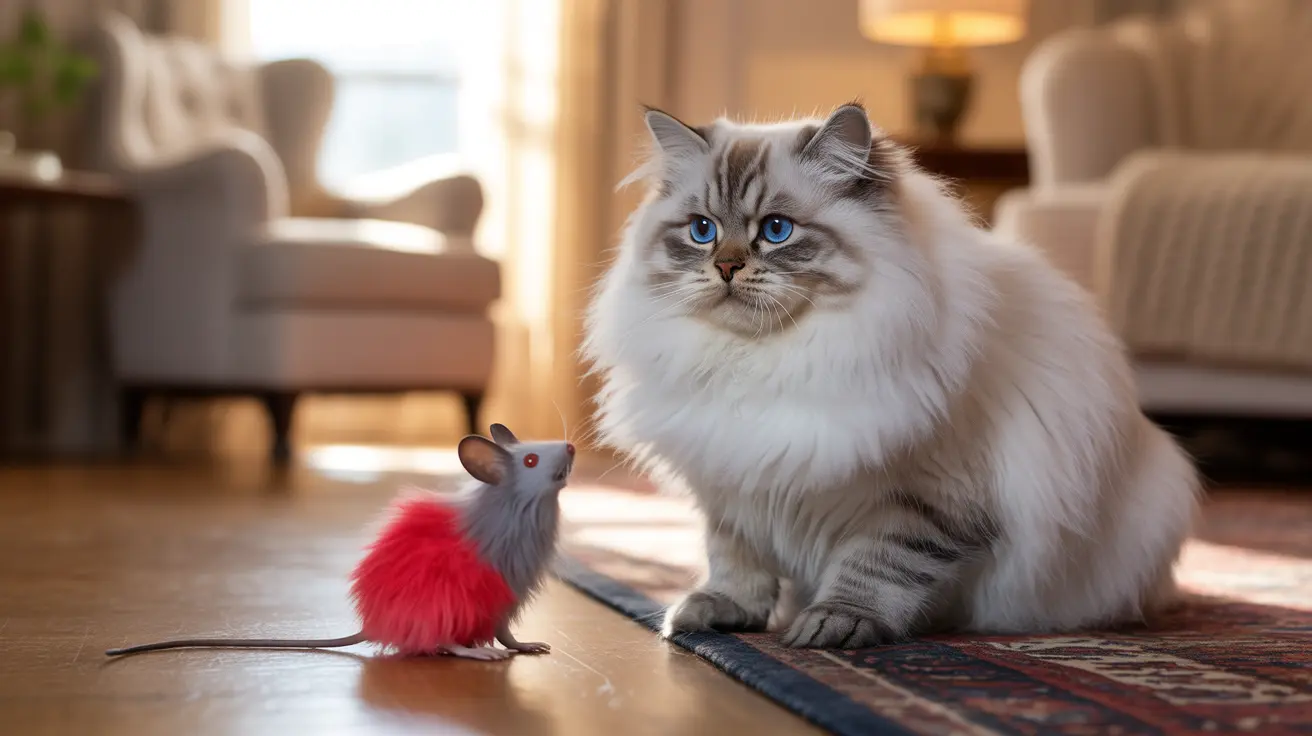Introduction
Understanding Balinese cat health issues is crucial for providing optimal care to these elegant and intelligent felines. As a breed closely related to Siamese cats, Balinese cats are generally healthy but face specific hereditary and genetic health challenges that every owner should be aware of. From vision problems to organ-specific conditions, being informed about these potential health concerns helps ensure early detection and proper management.
In this comprehensive guide, we'll explore the most common health issues affecting Balinese cats, their symptoms, and how to best manage them for your pet's wellbeing. Whether you're a current Balinese owner or considering adding one to your family, this information will help you provide the best possible care for your feline companion.
Common Hereditary Health Conditions
Balinese cats can inherit several health conditions that require careful monitoring and management. One of the most significant concerns is amyloidosis, a condition where abnormal proteins accumulate in vital organs, particularly the liver and kidneys. This condition typically affects younger cats between 8 months and 7 years of age and requires early intervention for the best outcome.
Progressive Retinal Atrophy (PRA) is another inherited condition that affects these cats. This degenerative eye disorder begins with night blindness and can eventually lead to complete vision loss. Regular veterinary check-ups can help monitor the progression of this condition and implement appropriate adaptations for affected cats.
Vision and Eye Disorders
Beyond PRA, Balinese cats commonly experience other eye-related issues. Nystagmus, characterized by rapid, involuntary eye movements, often occurs alongside strabismus (crossed eyes). While these conditions might look concerning, most affected cats adapt well and maintain functional vision throughout their lives.
Regular eye examinations are essential for early detection and management of these conditions. Your veterinarian can monitor any changes and recommend appropriate interventions when necessary.
Genetic Health Sensitivities
MDR1 medication sensitivity is a crucial consideration for Balinese cats. This genetic condition affects how their bodies process certain medications, making them more susceptible to adverse reactions. It's essential to inform your veterinarian about your cat's breed to ensure appropriate medication selection, particularly for anesthesia and other treatments.
Some Balinese cats may also develop mucopolysaccharidosis Type VI, a rare genetic condition affecting joint health and physical development. While severe cases are uncommon, even mild forms can impact joint health and require management strategies.
Respiratory and Immune System Concerns
Balinese cats show a higher predisposition to feline asthma and lower airway disease compared to many other breeds. Signs include coughing, wheezing, and difficulty breathing. Environmental modifications and medical management can help control these symptoms effectively.
Hyperesthesia syndrome, though rare, can affect these cats, causing extreme skin sensitivity and behavioral changes. Working with a veterinarian to develop a management plan is essential for affected cats.
Preventive Care and Management
Maintaining optimal health in Balinese cats requires a proactive approach. Regular veterinary check-ups, appropriate nutrition, and weight management are fundamental aspects of preventive care. Exercise and environmental enrichment help prevent obesity, while dental hygiene practices reduce the risk of oral health issues.
Genetic testing can identify potential health risks early, allowing for preventive measures and appropriate lifestyle modifications. Working closely with your veterinarian to develop a comprehensive health plan is essential for your Balinese cat's long-term wellbeing.
Frequently Asked Questions
What are the most common hereditary health issues affecting Balinese cats?
The most common hereditary health issues in Balinese cats include amyloidosis, Progressive Retinal Atrophy (PRA), crossed eyes (strabismus), and medication sensitivity (MDR1 gene deficiency.
How can I recognize and manage amyloidosis in my Balinese cat?
Watch for symptoms like lethargy, weight loss, increased thirst, and changes in appetite. Early veterinary intervention is crucial, and management typically involves supportive care and dietary modifications.
Are Balinese cats prone to vision problems like Progressive Retinal Atrophy or crossed eyes?
Yes, Balinese cats are genetically predisposed to both PRA and crossed eyes. While crossed eyes usually don't significantly impact vision, PRA can lead to progressive vision loss and requires monitoring.
What precautions should I take regarding medication sensitivity in Balinese cats?
Always inform your veterinarian about your cat's breed, as Balinese cats can be sensitive to certain medications. This is particularly important before surgery or when prescribing new medications.
How can I prevent obesity and maintain good overall health in my Balinese cat?
Maintain a balanced diet, provide regular exercise through play, schedule routine veterinary check-ups, and monitor weight consistently. Indoor enrichment activities can help prevent weight gain while keeping your cat mentally stimulated.






